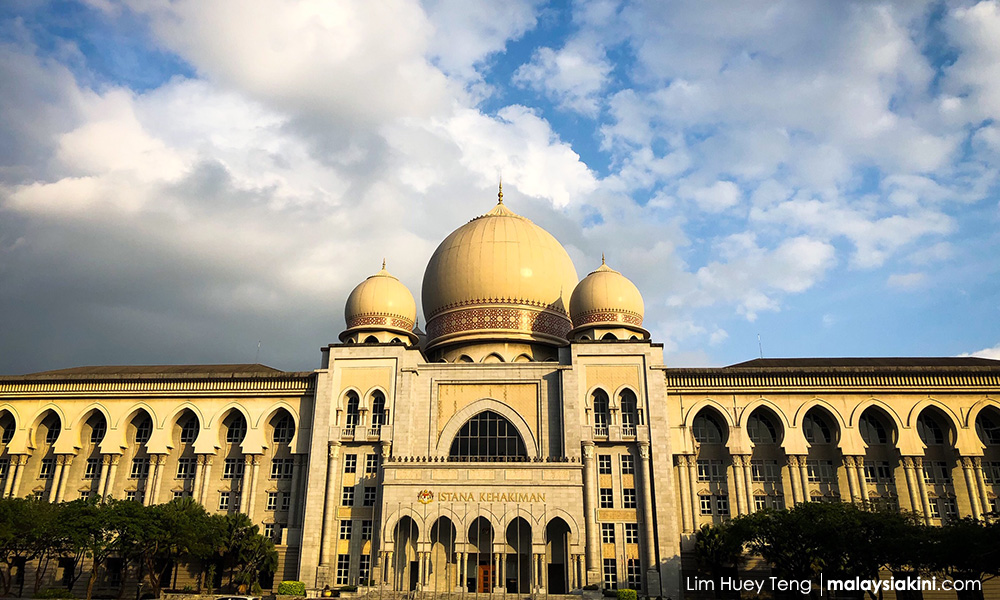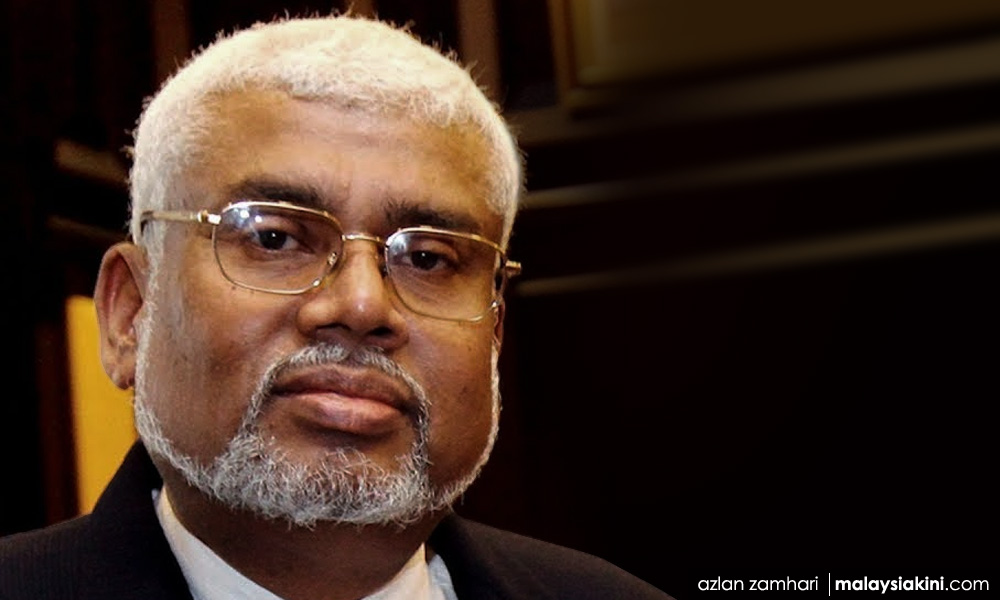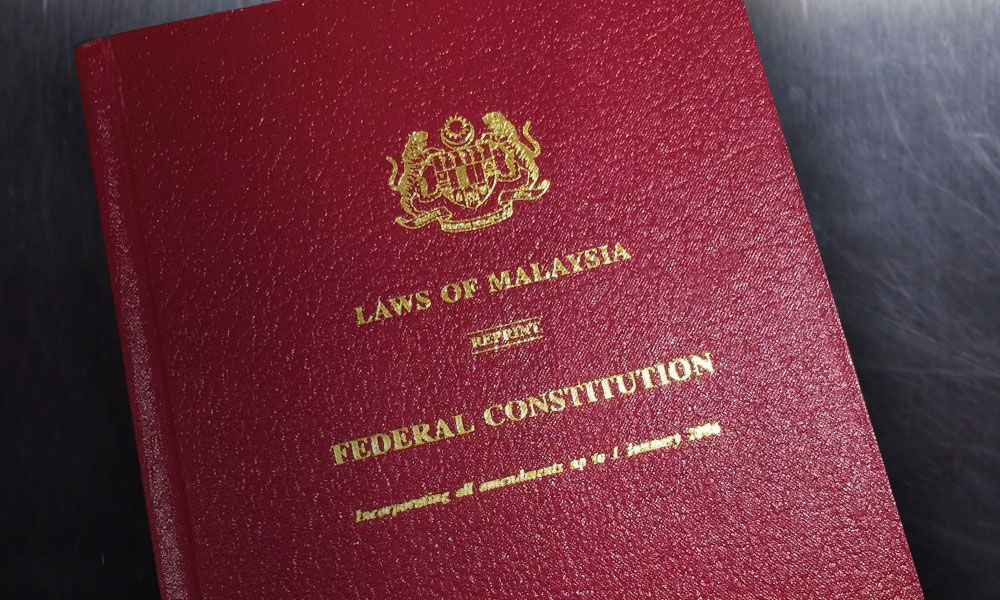UN must intervene in contempt case against Arun Kasi
COMMENT | The recent news of Arun Kasi, a lawyer facing contempt charges for allegedly scandalising the judiciary in relation to two articles he wrote on Aliran – a website covering issues of social importance – should come as a jolt to the heart of civil society.
The two articles – titled "How a dissenting judgment sparked a major judicial crisis" and "Tommy Thomas must look into arbitration centre that sparked judicial crisis" prompted the attorney-general to institute committal proceedings in the Federal Court against Arun on Feb 27.
Leave was granted by the Federal Court, and the substantive hearing has been fixed for Mar 13 on an urgent basis. In my view, the AG ought to reconsider his view to initiate contempt proceedings against Arun for the following reasons:
Incursion on Bar's independence
Arun's articles were written in the context of an expunction order made by the Federal Court. Constitutional observations made by a Court of Appeal judge in relation to an institution playing a role in the administration of justice, and also a direction made by the judge to the MACC to investigate the matter, were expunged.
This case raises issues of serious public interest and importance, and the proceedings initiated against Arun for bringing these issues to the attention of the public seriously threatens the independence of the Malaysian Bar and impedes professional advocacy.

Further, the United Nations' Basic Principles on the Roles of Lawyers (UNBRPL) contains several provisions that explicitly deal with the independence of lawyers.
Principle 16 of the UNBRPL sets out that the government must ensure that lawyers "are able to perform all of their duties without intimidation, hindrance, harassment or improper interference" and "shall not suffer, or be threatened with prosecution or administrative, economic or other sanctions for any action taken in accordance with recognised professional duties, standards and ethics."
Principle 23 grants lawyers the right to take part in public discussion on matters of the law, the administration of justice and the promotion and protection of human rights.
In writing the articles, Arun was acting in accordance with and promoting the spirit of Principle 23, and ought to be protected against prosecution under Principle 16.
Reflecting Hamid Sultan's affidavit
The only defence to a charge of scandalising the judiciary is 'fair criticism'. Arun’s comments here were undoubtedly fair criticism as they merely reflect comments made by Court of Appeal judge Hamid Sultan Abu Backer, and did not speak per se of any 'corruption' of the judiciary.
In that regard, his comments did not go nearly as far as Hamid Sultan did.

In addition, the affidavit sworn by Hamid Sultan resulted in the cabinet confirming that a royal commission of inquiry will be set up to investigate the claims made.
If the comments made by Hamid Sultan were sufficient to result in the commencement of an RCI, then it must be thought that the articles written by Arun reflecting those comments would surely constitute fair criticism.
Denial of fundamental right to appeal
By initiating proceedings in the Federal Court, Arun is deprived of his fundamental right to appeal. This is particularly important in this case – as the proceedings themselves are a curtailment of Arun’s fundamental constitutional rights of freedom of speech.
In Malaysia, unlike many other Commonwealth countries, the law on contempt has not been made an offence as such. The only provisions of written law dealing with it are in Order 52 of the Rules of Court 2012 and Article 126 of the Federal Constitution (as reflected in Section 13 of the Courts of Judicature Act 1964).
In 1999, there was some proposal to enact a Contempt of Court Act, but that did not materialise.

Articles 5, 7 and 8 of the Federal Constitution collectively disallow anyone from being punished, except where it is pursuant to the law. Further, Article 10 guarantees the right to freedom of speech.
The commencement and continuation of these contempt proceedings deny the aforementioned constitutional rights of Arun. In such a situation, it is especially important that the lawyer has a right to appeal against any adverse ruling.
Judiciary exercising its own power
As has been stated, these proceedings have been initiated by the attorney-general on an ex parte basis against Arun.
In my opinion, the AG need not have intervened, as the courts do not require their advocacy in this matter.
It is undeniable all three of the High Court, Court of Appeal and Federal Court have the power to punish for contempt of itself. This is provided by Article 126 of the Federal Constitution.
If the court feels that the judiciary has been scandalised, it is able to move contempt proceedings against Arun by issuing a show cause notice. There is no need for the AG to intervene unnecessarily.
Complaint to UN
In light of the above, I have made a complaint to the United Nations special rapporteur on the independence of judges and lawyers in my capacity as an international human rights lawyer.
In my representations, I have urged the special rapporteur to hold a watching brief on the day of Arun's hearing on Mar 13, to ensure that his rights to a fair hearing are not compromised.
In addition, I hope the AG would reconsider his decision to proceed with the contempt proceedings against Arun.
As Eric Paulsen, the country representative to the Asean Intergovernmental Commission on Human Rights, has said: “As it is often said, justice is not a cloistered virtue.
"The judiciary cannot escape close scrutiny of its conduct and judgments, as the public has high expectations of its role as the custodian of justice and the Federal Constitution.”
I agree with Paulsen and echo his call for the AG to reconsider his decision.
M RAVI is an international human rights lawyer from Singapore.
The views expressed here are those of the author/contributor and do not necessarily represent the views of Malaysiakini.
RM12.50 / month
- Unlimited access to award-winning journalism
- Comment and share your opinions on all our articles
- Gift interesting stories to your friends
- Tax deductable
